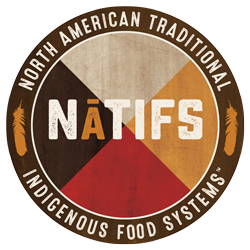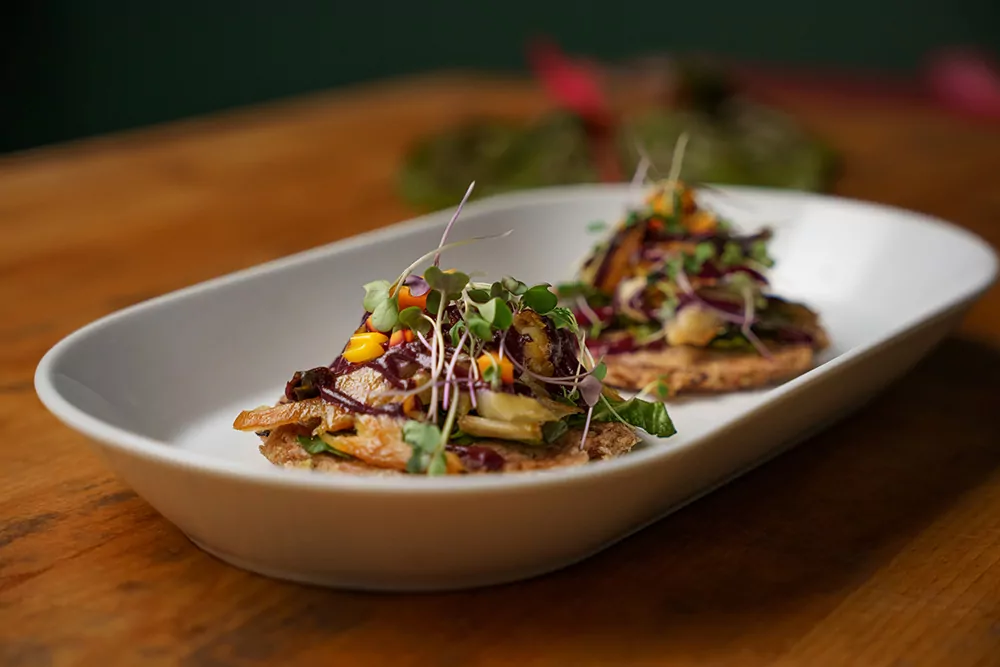By U.S. Senator Tina Smith
One of the best parts of my job is traveling around the state to talk to Minnesotans about what they care about and the issues impacting them, and one of the things I’ve heard a lot about is the Farm Bill. My staff and I have had conversations with dozens of stakeholders, including farmers, researchers, co-ops, Native and Tribal communities, and other farmers and producers of color to ensure the next Farm Bill works for everyone.
Native and Tribal communities face persistent inequities in nutrition and the agriculture sector, and the Farm Bill is the best opportunity to address them. As a member of both the Senate Indian Affairs and Agriculture committees, I have a unique opportunity to help lead the next Farm Bill so it works for your communities. It is critical that we include the priorities and voices of Native American producers and Tribal governments in the decision-making process. Native communities across the nation face unique challenges in the agriculture sector and it is our responsibility in Congress to address these disparities by providing meaningful support for Tribal agricultural programs.
In the heart of the Twin Cities community, North American Traditional Indigenous Food Systems (NATIFS) is spearheading a transformative movement founded by The Sioux Chef, Sean Sherman. Known for his nationally recognized, award-winning restaurant Owamni, Sean has dedicated his life to supporting and promoting Indigenous food systems and Native food sovereignty. Growing up on the Pine Ridge Indian Reservation in South Dakota, Sean has seen firsthand the negative health impacts caused by food deserts and lack of access to healthy, fresh foods in Indian Country. NATIFS advocates for policy changes that would grant Tribal communities greater control over the gathering and distribution of culturally significant foods such as elk, bison, wild rice, nettles, and other native plants. By creating paths in the Farm Bill for Native communities to embrace their own food sources, NATIFS’ vision will not only foster economic growth but also reclaim a vital connection to traditional foods. I’m committed to ensuring the next Farm Bill is supportive of what they’re working toward.
Congress is working on the next Farm Bill right now. It’s important legislation that funds and sets the policy on a wide variety of programs ranging from nutrition and agriculture to conservation and forestry. It also supports Tribal colleges by providing funding for agricultural education, research, scholarships, and rural development initiatives. This bill touches the lives of every American and is vital to our state and Tribal economies. But it hasn’t always been equitable or fair.
I am working in Congress to create the ‘Native Farm Bill,’ a collection of policy proposals that collectively would mean real progress throughout the Farm Bill for Native and Tribal communities. This package will include everything from self-governance expansion for Tribal Nations to designated navigators to help Native farmers and producers access USDA programs. Expanding self-governance at USDA will mean that Tribal Nations can build food systems to address food insecurity, increase access to Indigenous foods, use Indigenous knowledge for forest management and conservation, and support strong Tribal economies.
I am also working on strengthening nutrition assistance programs in the Farm Bill. I consider this one of the most important parts of this legislation for a pretty simple reason: it helps keep people from going hungry. The Supplemental Nutrition Assistance Program (SNAP) is the centerpiece of this, and we have the opportunity to strengthen this program to work toward putting an end to hunger in this country.
What I hear from a lot of Native farmers and advocates is that their work is being driven by the desire to reconnect their communities to Native foods and lands. I’ve been working on how we can better support that. This summer I introduced the Enabling Farmers to Benefit from Processing Nutrition Programs Act which would make it easier for nutrition assistance programs like SNAP to be used at farmers’ markets, boosting support for small and independent farmers, and creating greater access to healthy foods for low-income families. For example, Native families living in the Twin Cities metro area who rely on nutrition assistance programs could purchase Indigenous foods at the Four Sisters Farmers Market.
Food is medicine and has healed, nourished, and sustained Native communities for millennia. Expanding access to Native foods in the Farm Bill is an affirmation of the role these foods play in preventing and addressing health disparities prevalent in Indigenous communities. By supporting the cultivation, preservation, and better access to these foods, we are not only promoting better nutrition but also safeguarding the cultural heritage and identity of these communities.
In addition to expanding access to Native foods in the Farm Bill, other priorities I’m working on include increasing land, market, and capital access to new and beginning farmers, funding for socially disadvantaged farmer outreach programs and beginning farmer training programs, and legislation to root out discrimination and increase accountability within the USDA. We need to ensure that everyone, regardless of their background or circumstances, has the opportunity to thrive and participate in the rich tapestry of American agriculture.
President Biden recently signed a one-year extension for the current Farm Bill to provide certainty for farmers while we continue to work toward a bipartisan, multi-year bill. We have a lot of work to do, but I am optimistic that the next Farm Bill offers a path to rectifying historical injustices, addressing disparities, and supporting the self-determination of Native American producers and the sovereignty of Tribal governments. By working with Native and Tribal leaders, we can ensure the next Farm Bill empowers Native communities to develop and implement sustainable agricultural strategies that align with their unique needs and priorities, and we can strengthen programs that expand access to Native foods for urban Indigenous communities. Together, we are forging a path toward a more just, equitable, and inclusive agricultural landscape that benefits us all. Now is the time to seize the moment and work collaboratively to ensure that when we do pass the Farm Bill, it is the best one yet and reflects the needs of our Native and Tribal communities.






